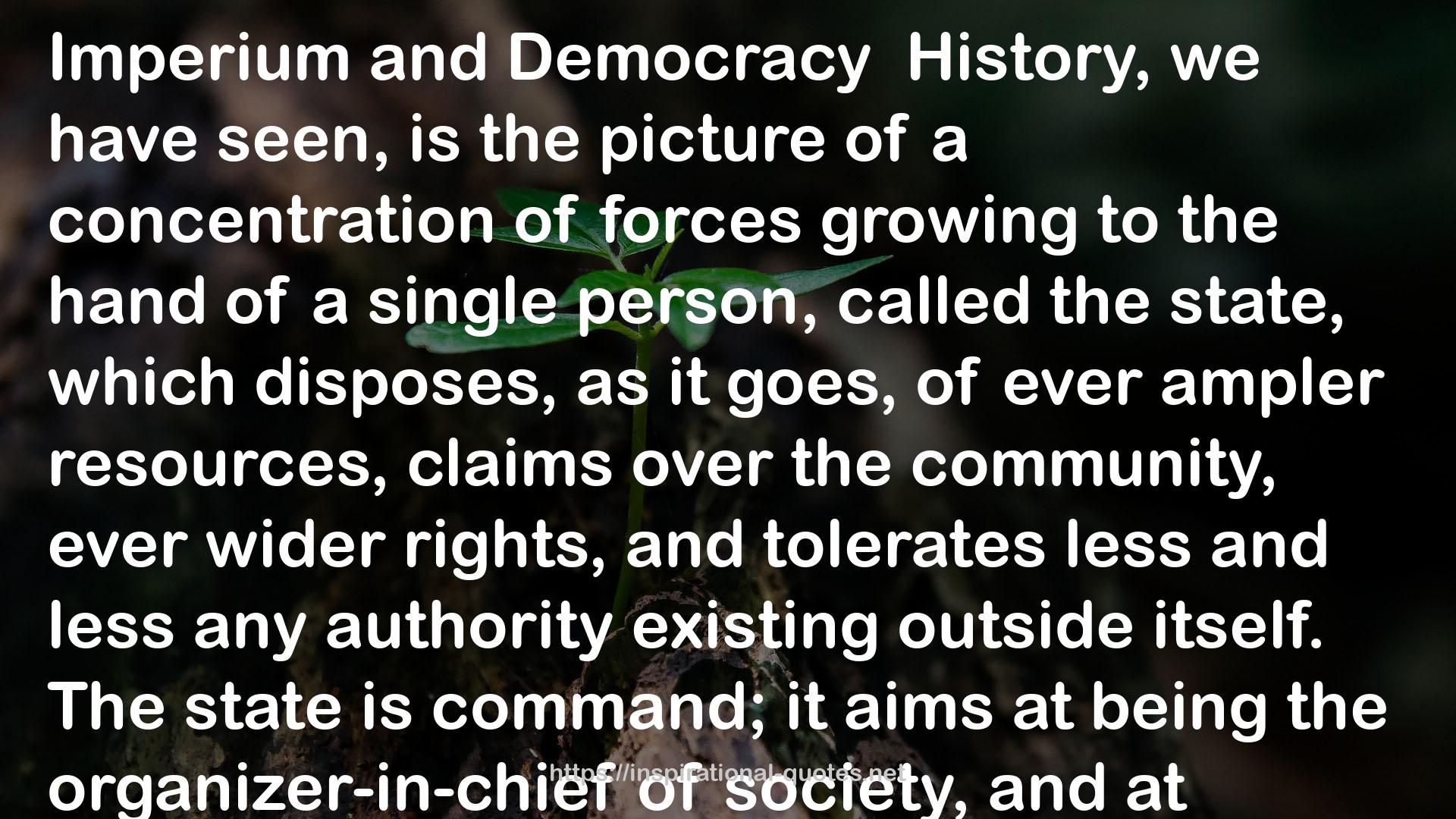" Imperium and Democracy
History, we have seen, is the picture of a concentration of forces growing to the hand of a single person, called the state, which disposes, as it goes, of ever ampler resources, claims over the community, ever wider rights, and tolerates less and less any authority existing outside itself. The state is command; it aims at being the organizer-in-chief of society, and at making its monopoly of this roles ever more complete. We have seen now, on the other hand, various social authorities defend themselves against it, and set their right in the opposition to its rights, and their liberties, which are often of an anarchic or oppressive character, to its authority. Unceasing war has been waged between these two forces, betweem the interest calling itself general and interests avowing themselves private.
Power has its ups and downs, but, lookging at the picture as a whole, it is one of continuous advance, an advance which is reflected in the stupendous growth of its instruments, its revenues, its armed forces, its police forces, and its capacity to make laws.
Next, we have seen the old Power cast out. But this revolution has not been followed by Power’s dismemberment; far from it. What has perished in the upheveal has been the social authorities which obstructed its advance. And the spiritual authority, too, which gave it rules of behavior, has suffered a great decline. But the complex of rights and powers which composed it has not fallen apart: it has only passed into other hands. "
― Bertrand De Jouvenel , On Power: The Natural History of Its Growth
